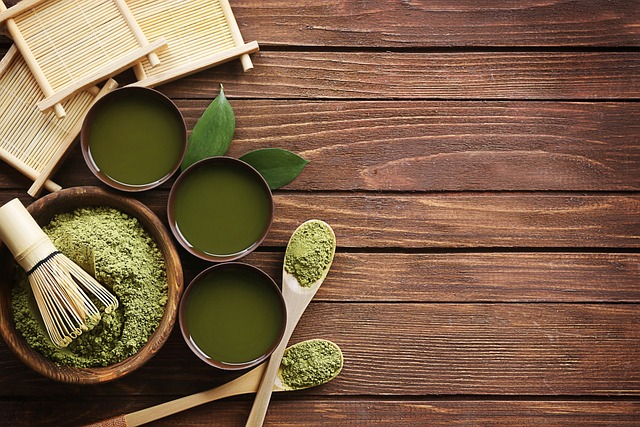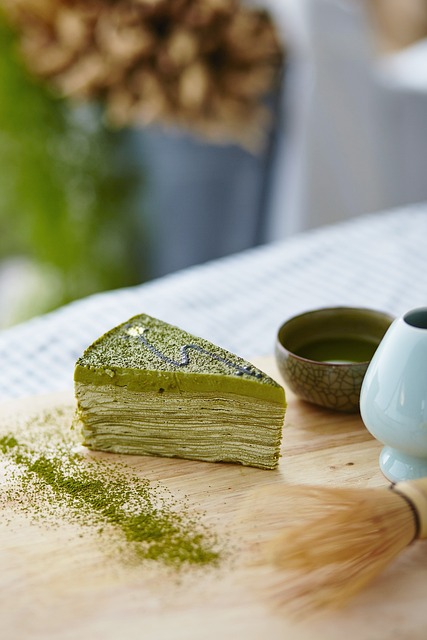Kratom, a controversial herbal drug derived from the leaves of a Southeast Asian tree, has gained popularity among individuals seeking pain relief and anxiety reduction. However, its use often comes at a high price – the potential for addiction and withdrawal symptoms that can be difficult to overcome. In this article, we will delve into the world of kratom withdrawal and explore strategies that have proven effective in kicking this addictive substance to the curb. Whether you’re contemplating quitting or are embarking on the challenging journey of recovery, we’ve got you covered with essential insights and practical tips. Join us as we shed light on this growing concern and equip you with the tools needed to triumph over kratom withdrawal.
1. Understanding Kratom Withdrawal: A Closer Look at the Challenge
Kratom, a unique plant native to Southeast Asia, has gained popularity over the years as a natural herbal remedy for various ailments. However, behind its promising benefits lies a potential challenge that many users may face – kratom withdrawal. In order to truly understand the complexities of this issue, it is crucial to delve deeper into the intricacies of kratom withdrawal and the difficulties associated with overcoming it.
One of the main reasons why kratom withdrawal can be challenging is due to its complex chemical composition. Kratom leaves contain several active compounds, including mitragynine and 7-hydroxymitragynine, which bind to the same receptors in the brain as opioids. As a result, individuals who use kratom regularly may develop a physical dependence on the plant. When they abruptly stop taking it, they may experience a range of withdrawal symptoms such as anxiety, irritability, nausea, muscle aches, and insomnia.
- Withdrawal symptoms may vary in intensity and duration depending on the individual’s kratom usage habits, dosage, and duration.
- The process of kratom withdrawal is often described in three stages: early withdrawal, peak withdrawal, and late withdrawal.
- Early withdrawal symptoms typically start within 6-12 hours after the last dose and can include cravings, mood swings, and decreased appetite.
- During peak withdrawal, which usually occurs within 2-3 days, symptoms intensify and may include severe anxiety, diarrhea, and tremors.
- Late withdrawal symptoms, occurring after a week or more, often involve fatigue, depression, and difficulty concentrating.
It is important to note that kratom withdrawal is not the same as addiction, although they can be intertwined. Addiction is characterized by compulsive drug-seeking behavior and the inability to control or stop usage, while withdrawal refers to the physical and psychological symptoms that occur when a substance is abruptly discontinued. Understanding the distinct challenges of kratom withdrawal can help individuals make informed decisions and seek appropriate support as they navigate through this difficult phase.
2. Mapping the Road to Recovery: Effective Strategies for Overcoming Kratom Withdrawal
Kratom withdrawal can be a challenging and uncomfortable experience, but with the right strategies, it is possible to overcome it. In this post, we will explore effective strategies that can help individuals navigate the road to recovery after stopping kratom use.
1. Gradual tapering: Gradually reducing the dosage of kratom over time can help minimize the intensity of withdrawal symptoms. A tapering schedule should be carefully planned, ideally with the guidance of a healthcare professional or addiction specialist. Slowly decreasing the amount of kratom consumed allows the body to adjust gradually, easing the transition and reducing the severity of withdrawal symptoms.
- Set a tapering schedule and stick to it.
- Reduce the dosage by a small percentage every few days.
- Listen to your body and adjust the tapering schedule if necessary.
- Consider seeking medical supervision for a safer tapering process.
2. Utilize natural remedies: During kratom withdrawal, it can be beneficial to explore various natural remedies that may help alleviate withdrawal symptoms and support the recovery process. Some potential natural remedies to consider include:
- Improve nutrition: Consuming a balanced diet can aid in restoring the body’s nutrition and promoting overall well-being. Focus on incorporating healthy fats, proteins, fruits, and vegetables into your meals.
- Stay hydrated: Dehydration can worsen withdrawal symptoms, so it’s essential to drink plenty of water throughout the day. Aim for at least eight glasses of water per day.
- Exercise: Engaging in regular physical activity can help reduce stress, improve mood, and increase energy levels. Start with low-impact exercises and gradually increase intensity as your body allows.
- Get quality sleep: Aim for a consistent sleep schedule and create a sleep-friendly environment. Incorporating relaxation techniques like meditation or taking a warm bath before bed may be helpful in promoting better sleep quality.
By gradually tapering off kratom and utilizing natural remedies, individuals can effectively manage kratom withdrawal symptoms and embark on a successful journey towards recovery. It is crucial to seek support from healthcare professionals or support groups during this challenging time to ensure a safe and supported recovery process.
3. Breaking Free: Essential Steps to Successfully Kick the Kratom Habit
When it comes to breaking free from kratom dependence, it is crucial to have a solid plan in place. Follow these essential steps to successfully kick the kratom habit:
1. Educate Yourself:
- Learn about the effects of kratom on your body and mind. Understanding its impact will help you stay motivated during the recovery process.
- Research withdrawal symptoms and potential challenges you may face. Knowledge is power, and being prepared can make all the difference.
- Talk to healthcare professionals, such as addiction counselors or therapists, who specialize in substance abuse. Their expertise can provide invaluable guidance and support.
2. Establish a Support System:
- Reach out to loved ones, friends, or support groups to let them know about your decision to quit kratom. Having a strong support system will make the journey easier.
- Consider joining online forums or communities where people share their experiences and strategies for overcoming addiction. Interacting with others who are going through similar struggles can provide encouragement and valuable advice.
- Connect with a sponsor or mentor who has successfully overcome kratom addiction. Their firsthand experience and wisdom can be a lifeline during challenging times.
4. Navigating the Withdrawal Timeline: What to Expect During Kratom Detox
Detoxing from kratom can be a challenging process, but knowing what to expect during the withdrawal timeline can help you navigate it with greater ease. Here are some common symptoms and tips to manage them:
1. Early Withdrawal Phase:
- Duration: 24 to 72 hours
- Symptoms: Anxiety, restlessness, cravings, irritability, sweating, nausea
- Tips: Stay hydrated, engage in light exercise or yoga, practice deep breathing techniques, consider over-the-counter remedies
2. Acute Withdrawal Phase:
- Duration: 1 to 2 weeks
- Symptoms: Increased anxiety, depression, insomnia, muscle aches, fatigue
- Tips: Establish a routine, seek support from friends or family, distract yourself with hobbies or activities, try relaxation techniques like meditation or aromatherapy
Remember, everyone’s experience with kratom detox is unique, and the severity and duration of withdrawal symptoms can vary. It’s essential to consult a healthcare professional for personalized guidance and support throughout your detox journey.
5. Building a Support System: The Role of Friends, Family, and Professional Help in Kratom Withdrawal
Building a strong support system is crucial for individuals going through kratom withdrawal. Friends, family, and professional help can provide the necessary emotional, physical, and psychological support during this challenging time. Having a robust support network can significantly increase the chances of successful recovery.
Friends and Family: Friends and family play a vital role in assisting individuals during kratom withdrawal. Their understanding and empathy can provide a sense of comfort and reassurance. Being surrounded by loved ones who offer encouragement can help alleviate feelings of isolation and loneliness. These close relationships can also serve as a safeguard against relapse, as loved ones can provide a supportive environment and help individuals stay focused on their recovery goals.
Professional Help: Seeking professional help, such as therapists or counselors specializing in addiction, is highly recommended during kratom withdrawal. Professionals can provide valuable guidance and support in developing coping mechanisms to manage withdrawal symptoms. They can help individuals address underlying psychological issues that may have contributed to kratom use and develop strategies to avoid relapse. Additionally, professionals can tailor treatment plans to specific needs, providing personalized care on the road to recovery.
6. Coping with Withdrawal Symptoms: Practical Techniques to Manage Discomfort
Withdrawal symptoms can be challenging to manage, but with the right techniques, you can alleviate discomfort and make the process more bearable. Here are some practical strategies to cope with withdrawal symptoms:
- Stay hydrated: Drinking plenty of water helps flush toxins out of your system and reduces the severity of withdrawal symptoms.
- Practice deep breathing: Deep breaths can help calm your mind and relax your body, providing relief from anxiety and restlessness.
- Engage in physical activity: Exercise releases endorphins, which act as natural painkillers and improve mood. Low-impact exercises like walking or yoga can be especially beneficial during withdrawal.
Moreover, distractions can come in handy when you’re experiencing discomfort. Consider these additional techniques:
- Find a hobby: Channel your energy into a new or existing hobby that brings you joy and helps distract from withdrawal symptoms.
- Seek support: Reach out to a friend, family member, or support group who can offer guidance and understanding throughout your withdrawal journey.
- Practice self-care: Taking care of yourself is crucial during this challenging time. Engage in activities that promote relaxation and indulge in healthy treats to reward yourself.
7. Embracing a New Lifestyle: Rebuilding Life After Kratom Addiction
Recovering from kratom addiction involves more than just quitting the substance; it requires embracing a whole new lifestyle. This lifestyle shift aims to rebuild and prioritize one’s physical, mental, and emotional well-being. By implementing certain strategies and adopting positive habits, individuals can successfully navigate the path of recovery and build a fulfilling life free from the grip of kratom addiction.
1. Establishing a Supportive Network: Surrounding yourself with a supportive network of friends, family, and counselors can make a world of difference during the recovery process. These individuals provide encouragement, understanding, and accountability, helping to prevent relapse. Joining support groups or 12-step programs can also offer a platform to share experiences, gain insights, and learn from others on the same journey.
2. Incorporating Healthy Habits: A fundamental aspect of rebuilding life after kratom addiction entails adopting new and healthier habits. Regular exercise not only promotes physical well-being but also helps relieve stress and release endorphins, reducing the chances of relapse. Supplementing with a balanced diet rich in fruits, vegetables, and lean proteins aids in restoring essential nutrients and improving overall health. Implementing stress-management techniques like yoga, meditation, and deep breathing exercises can alleviate anxiety and enhance emotional stability, contributing to long-term recovery.
FAQ
Q: What is kratom withdrawal, and why is it a concern?
A: Kratom withdrawal refers to the physical and psychological symptoms experienced by individuals trying to cease or reduce their kratom use. It typically occurs after chronic kratom consumption. Concern arises as withdrawal symptoms can be distressing and affect daily functioning.
Q: What are the common symptoms of kratom withdrawal?
A: Common symptoms include anxiety, irritability, restlessness, muscle aches, insomnia, tremors, sweating, nausea, and cravings. Some users may also experience mood swings, depression, difficulty concentrating, and decreased appetite.
Q: How long does kratom withdrawal last?
A: The duration of kratom withdrawal can vary depending on various factors like the individual’s usage pattern, dosage, and overall health. Typically, acute withdrawal symptoms last around 5-10 days, but some individuals may experience protracted symptoms that can persist for weeks or even months.
Q: Are there any effective strategies to overcome kratom withdrawal?
A: Yes, there are several strategies that can be helpful in managing kratom withdrawal. These include tapering off kratom slowly, seeking support from healthcare professionals or support groups, maintaining a healthy lifestyle, practicing relaxation techniques, and considering medications to alleviate specific symptoms.
Q: How does tapering off kratom work?
A: Tapering involves gradually reducing the dosage of kratom over a period of time. This method helps the body adjust to the decreasing levels of the substance, reducing the severity of withdrawal symptoms. It is recommended to create a tapering schedule under the guidance of a medical professional.
Q: What role does support play in overcoming kratom withdrawal?
A: Support from healthcare professionals, therapists, or support groups can greatly assist individuals during the withdrawal process. They provide guidance, motivation, and essential coping strategies, ensuring a smoother and more successful recovery journey.
Q: What lifestyle changes can aid in managing withdrawal symptoms?
A: Engaging in regular exercise, maintaining a balanced diet, staying hydrated, getting enough sleep, and reducing stress levels through techniques like meditation and yoga can help alleviate withdrawal symptoms. These changes promote overall well-being and aid in the recovery process.
Q: Can medications be used to manage kratom withdrawal symptoms?
A: Some medications, such as clonidine for reducing anxiety and high blood pressure, and over-the-counter remedies for diarrhea and pain relief can be utilized during kratom withdrawal. However, it is crucial to consult a healthcare professional for appropriate recommendations and dosage guidance.
Q: Are there any alternative therapies or remedies that can assist with overcoming kratom withdrawal?
A: While scientific evidence regarding alternative therapies is limited, some individuals find relief from symptoms through holistic approaches like acupuncture, herbal supplements (under medical supervision), and engaging in creative activities like art therapy.
Q: What should individuals expect after successfully overcoming kratom withdrawal?
A: After overcoming kratom withdrawal, individuals generally experience improved physical and mental well-being. However, it is essential to remain vigilant during recovery, seeking ongoing support, and adopting healthier habits to reduce the risk of relapse and maintain long-term wellness.
Conclusion
In conclusion, tackling Kratom withdrawal requires a strategic approach and a commitment to one’s own well-being. By adopting a comprehensive plan that combines physical, emotional, and psychological strategies, individuals can successfully navigate the challenges of withdrawal and regain control over their lives. From gradually tapering off Kratom usage to seeking professional guidance and support, there are numerous effective methods available to kick Kratom. It is important to remember that each individual’s journey is unique, and what works for one person may differ for another. Therefore, it is essential to consult with healthcare professionals, addiction specialists, and trusted support networks to tailor a plan that suits specific needs and circumstances.
Throughout this article, we have aimed to provide an informative overview of Kratom withdrawal, its impact on users, and the promising strategies to overcome it effectively. By shedding light on the physical and psychological symptoms, we hope to encourage empathy and understanding for those going through this challenging experience.
As the landscape of substance withdrawal continues to evolve, it is imperative to remain vigilant and informed. The growing body of research surrounding Kratom and its withdrawal effects calls for further comprehensive studies to better understand its long-term implications. By combining scientific research, medical expertise, and lived experiences, we can ensure that individuals struggling with Kratom withdrawal are equipped with the necessary tools and strategies to pave their path towards recovery.
Remember, seeking help and support is a sign of strength and a crucial step on the road to recovery. With determination, guidance, and a supportive community, it is possible to overcome Kratom withdrawal and embrace a healthier, happier future.












